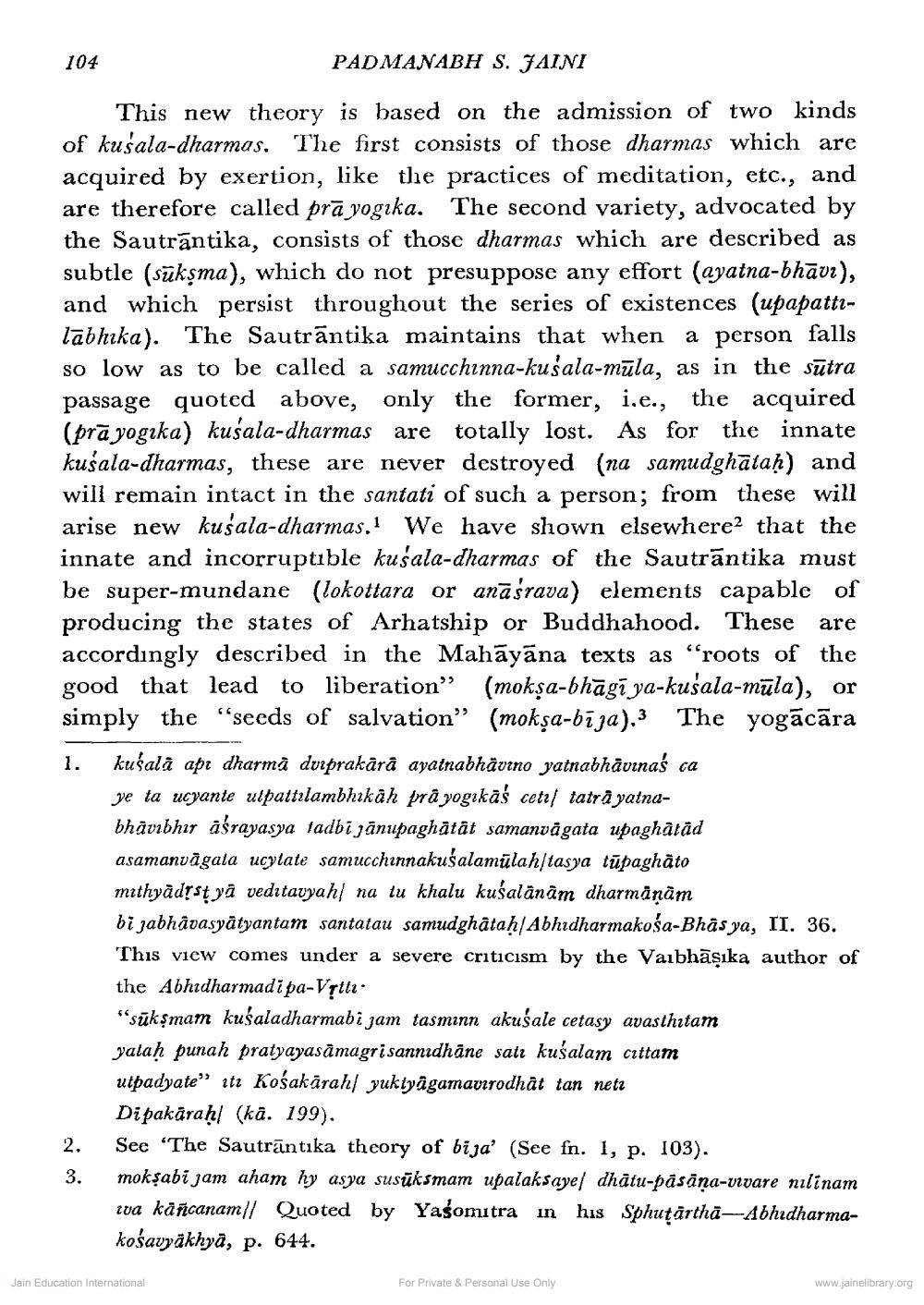________________
104
PADMANABH S. JAINI This new theory is based on the admission of two kinds of kušala-dharmas. The first consists of those dharmas which are acquired by exertion, like the practices of meditation, etc., and are therefore called prā yogika. The second variety, advocated by the Sautrāntika, consists of those dharmas which are described as subtle (sükşma), which do not presuppose any effort (ayatna-bhāvi), and which persist throughout the series of existences (upapattılābhika). The Sautrāntika maintains that when a person falls so low as to be called a samucchinna-kušala-mula, as in the sūtra passage quoted above, only the former, i.e., the acquired (prā yogika) kusala-dharmas are totally lost. As for the innate kušala-dharmas, these are never destroyed (na samudghātaḥ) and will remain intact in the santati of such a person; from these will arise new kusala-dharmas. We have shown elsewhere2 that the innate and incorruptible kušala-dharmas of the Sautrāntika must be super-mundane (lokottara or anaśrava) elements capable of producing the states of Arhatship or Buddhahood. These are accordingly described in the Mahāyāna texts as “roots of the good that lead to liberation" (mokşa-bhāgi ya-kušala-müla), or simply the "seeds of salvation” (mokșa-bīja),3 The yogācāra
kušalā apr dharmà durprakārā ayatnabhävino yatnabhāvinaś ca ye ta ucyante ulpattılambhikâh prayogikaś ceta/ tatrā yatnubhavibhir asrayasya tadbi jānupaghātât samanvāgata upaghatád asamanvāgala ucylate samucchinnakusalamūlah/tasya tūpaghāto mithyadrst på veditavyah/ na tu khalu kusalānām dharmanām bi jabhāvasyātyantam santatau samudghâtah/Abhidharmakośa-Bhas ya, II. 36. This view comes under a severe criticism by the Vaibhāşıka author of the Abhidharmadi pa-Vğili. "sūkşmam kuśaladharmabi jam tasminn akusale cetasy avasthitam yataḥ punah pratyayasamagrisannidhane satı kuśalam cittam utpadyate" itt kośakārah) yuktyagamavirodhat tan netz Dipakāraḥ/ (kā. 199).
See "The Sautrāntika theory of bija' (See fn. 1, p. 103). 3. mokşabi jam aham hy asya susüksmam upalaksaye) dhātu-päsāna-vivare nilinam
iva kāñicanam|| Quoted by Yašomitra in his Sphuţārthā--Abhidharmakośavyakhyā, p. 644.
Jain Education International
For Private & Personal Use Only
www.jainelibrary.org




